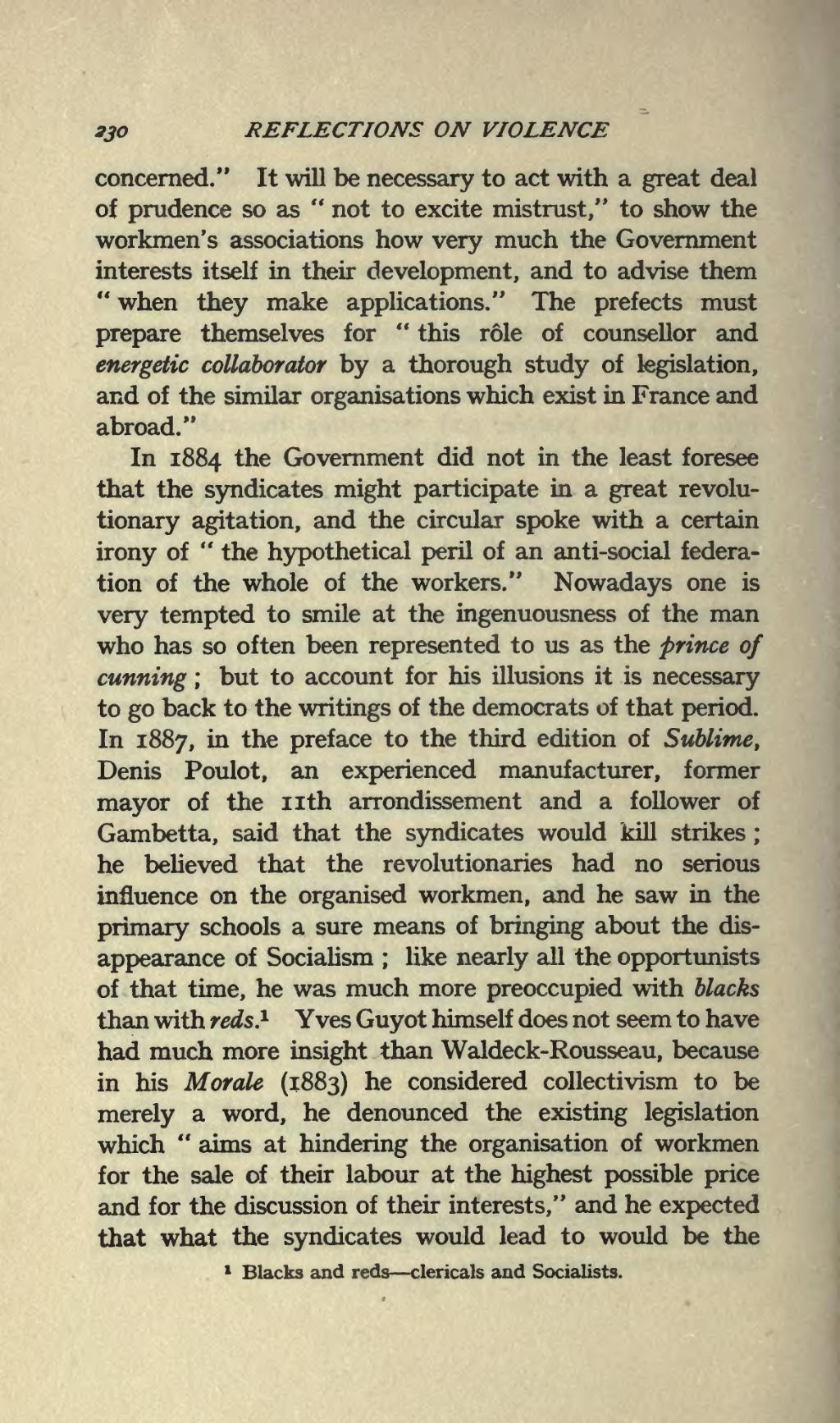concerned." It will be necessary to act with a great deal of prudence so as "not to excite mistrust," to show the workmen's associations how very much the Government interests itself in their development, and to advise them "when they make applications." The prefects must prepare themselves for "this rôle of counsellor and energetic collaborator by a thorough study of legislation, and of the similar organisations which exist in France and abroad."
In 1884 the Government did not in the least foresee that the syndicates might participate in a great revolutionary agitation, and the circular spoke with a certain irony of "the hypothetical peril of an anti-social federation of the whole of the workers." Nowadays one is very tempted to smile at the ingenuousness of the man who has so often been represented to us as the prince of cunning; but to account for his illusions it is necessary to go back to the writings of the democrats of that period. In 1887, in the preface to the third edition of Sublime, Denis Poulot, an experienced manufacturer, former mayor of the 11th arrondissement and a follower of Gambetta, said that the syndicates would kill strikes; he believed that the revolutionaries had no serious influence on the organised workmen, and he saw in the primary schools a sure means of bringing about the disappearance of Socialism; like nearly all the opportunists of that time, he was much more preoccupied with blacks than with reds.[1] Yves Guyot himself does not seem to have had much more insight than Waldeck-Rousseau, because in his Morale (1883) he considered collectivism to be merely a word, he denounced the existing legislation which "aims at hindering the organisation of workmen for the sale of their labour at the highest possible price and for the discussion of their interests," and he expected that what the syndicates would lead to would be the
- ↑ Blacks and reds—clericals and Socialists.
